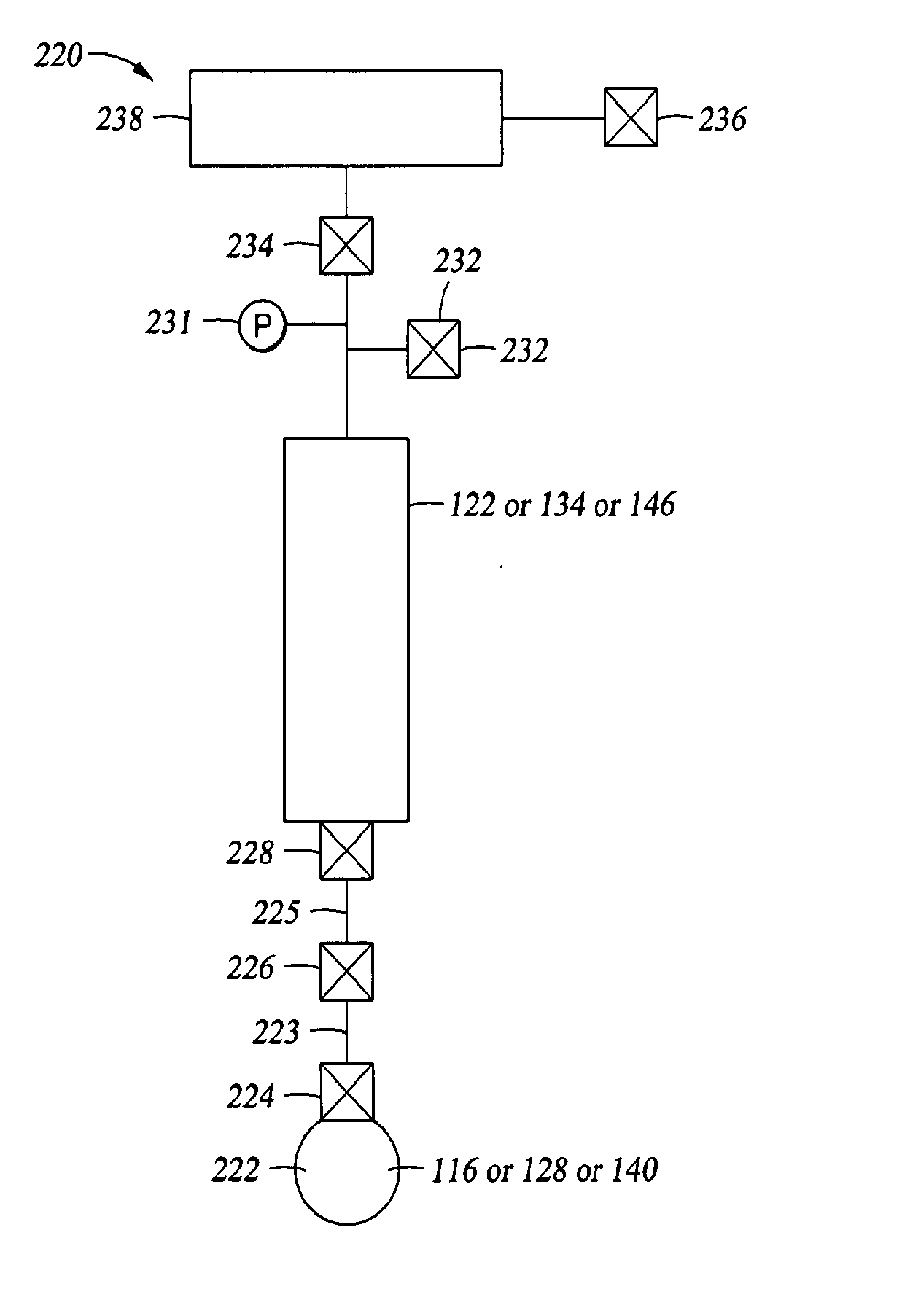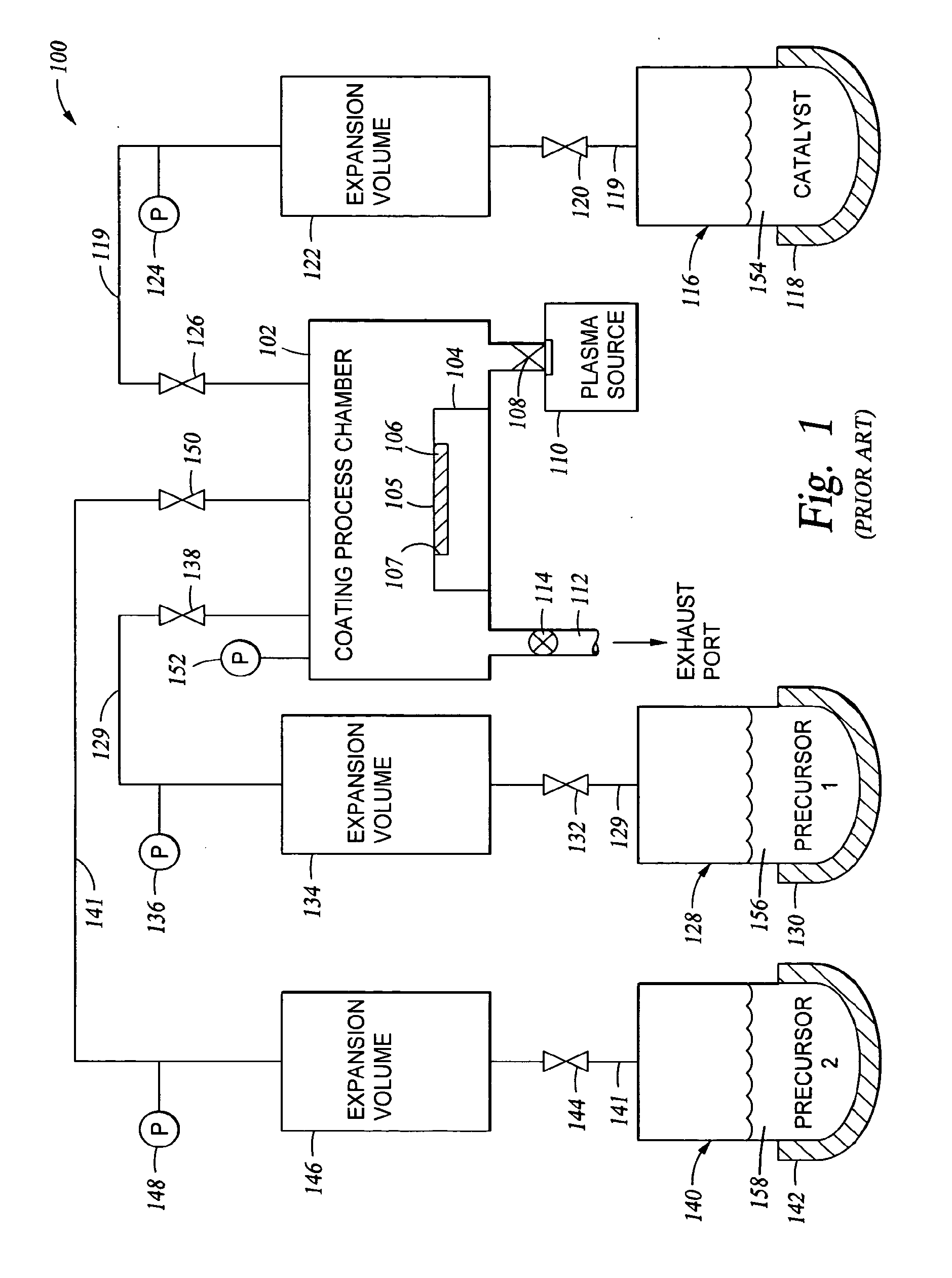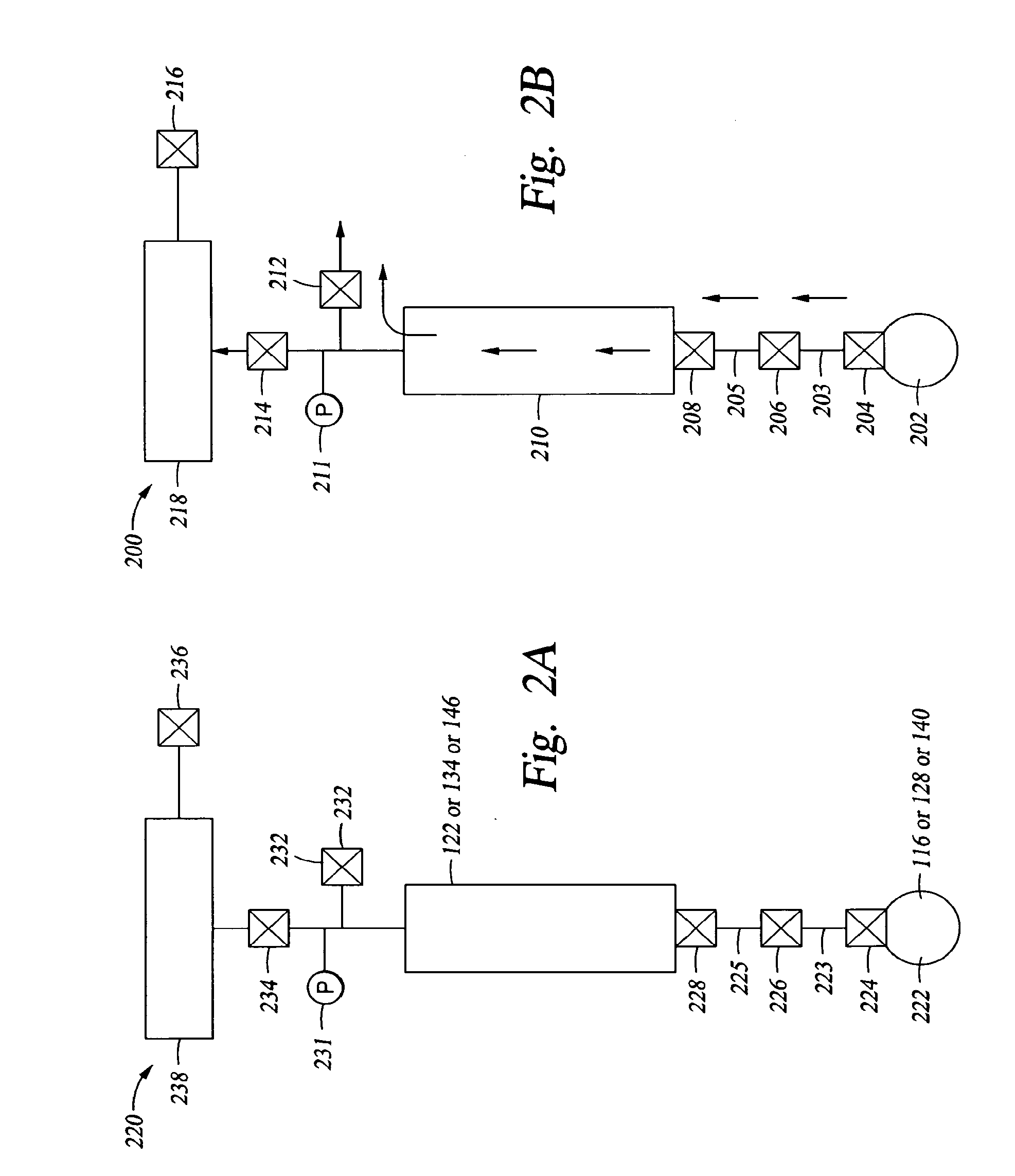Precursor preparation for controlled deposition coatings
a technology of precursors and coatings, applied in chemical vapor deposition coatings, metal material coating processes, coatings, etc., can solve the problems of limited film property control, loss of device yield, and relatively complicated design of vapor-liquid separators described above, and achieve the effect of easy integration
- Summary
- Abstract
- Description
- Claims
- Application Information
AI Technical Summary
Benefits of technology
Problems solved by technology
Method used
Image
Examples
example one
Removal of Protective Gases From Precursor Composition Supply
[0064] Freshly filled supply cylinders provided by vendors, which act as the precursor composition supply vessel, are frequently pressured with an inert gas such as nitrogen at atmospheric pressure to provide a “blanket” over the precursor composition, which prevents the entry of contaminants from ambient. When a blanketing gas is used to protect the precursor composition, the precursor purification process can be used to remove the blanketing gas. When the precursor composition supply vessel is one which is emptied and refilled, gaseous impurities present in tank trucks or from rail tankers may require similar removal of protective gases.
[0065] The procedure for protective gas removal is as follows, with reference to FIG. 2B:
[0066] 1) With shut off valve 204 closed, and downstream optional bypass valve 212 (if present) and line valve 214 closed, the fluid flow conduits between the shut off valve 204 and the vacuum (pre...
example two
Removal of Impurities From a Precursor Composition at Room Temperature
[0079] After the protective gases, or air, or other vapors have been removed to the extent that the pressure sensor maximum is not exceeded by the gaseous materials exiting the liquid precursor composition supply vessel, it is possible to proceed with the removal of other impurities present in the liquid precursor composition.
[0080] Subsequent to the steps shown in Paragraph [0065} above, impurity removal with the precursor composition at room temperature is as follows, with reference to FIG. 2B:
[0081] 1) With shut off valve 204 open 100% and variable aperture valve 206 opened 100%, restrictor valve 208 is opened for a time period ranging from about 5 seconds to about 60 seconds (typically 30 seconds is adequate) to release a portion of the volatile gases from the precursor composition supply vessel 202 through the conduits 203 and 205 into the limited volume chamber 210. (Exhaust valve 212 (if present) and lin...
example three
Removal of Impurities From a Precursor Composition at Elevated Temperature
[0086] The method of the invention is typically used to remove additional impurities from the precursor composition up to about the temperature at which the reactive precursor is to be used during deposition of a thin film / layer. This reduces the effect on the deposited layer of remaining impurities which are present in the reactive precursor during deposition of the layer.
[0087] One skilled in the art, will be able to determine the boiling point of a given liquid reactant precursor at a given subatmospheric pressure which is present in the limited volume container (typically the expansion volume, 122, 134, or 146) by using a combination of tools such as those shown in FIGS. 3A and 3B. (The theoretical vapor pressure of the reactant precursor will equal that of the pressure in the expansion volume at that temperature.) FIG. 3A shows a nomograph 300, which illustrates the relationship between a boiling point ...
PUM
| Property | Measurement | Unit |
|---|---|---|
| Temperature | aaaaa | aaaaa |
| Temperature | aaaaa | aaaaa |
| Temperature | aaaaa | aaaaa |
Abstract
Description
Claims
Application Information
 Login to View More
Login to View More - R&D
- Intellectual Property
- Life Sciences
- Materials
- Tech Scout
- Unparalleled Data Quality
- Higher Quality Content
- 60% Fewer Hallucinations
Browse by: Latest US Patents, China's latest patents, Technical Efficacy Thesaurus, Application Domain, Technology Topic, Popular Technical Reports.
© 2025 PatSnap. All rights reserved.Legal|Privacy policy|Modern Slavery Act Transparency Statement|Sitemap|About US| Contact US: help@patsnap.com



